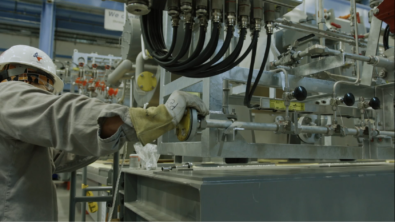Custom Engineer to Order Solutions Configured Faster

Maximizing engineer to order efficiency with Rulestream
For Mitsubishi Heavy Industries Compressor International, delivering products that fulfill their customer’s unique specifications is paramount to their success.
Various market segment within the oil and gas industry have different compression needs and process requirements – there is no “one size fits all” solution.
Rather, they have to customize solutions to meet the customer’s requirements.
To accomplish this, they utilize a process called Engineer to Order (ETO), a type of manufacturing where a product is engineered and produced after an order has been received.

The challenges of product configuration are amplified when you have to deliver products specific to each customer. These highly complex, engineered to order products require new variants of parts and designs with every order.
Mitsubishi Heavy Industries Compressor recognized the need to automate repetitive proposal development processes to support their engineer to order products.
Mitsubishi Heavy Industries Compressor adopted Siemens Rulestream to maximize the efficiency of their engineer to order processes.
Improving proposal development with automation
Mitsubishi Heavy Industries Compressor wanted to automate the proposal development for their custom steam turbines and compressors to make it more efficient for their application engineers. Rulestream allowed them to input all the information into one single tool. And, with rules managed within the same system, and they could get then generate the proposal output from the same system.
The first benefit Rulestream offered was a reduction in Mitsubishi’s proposal lead time. Previously, they relied on Excel-based tools for designing the compressor and putting proposals together, but each of those tools were independent and didn’t adequately talk to one another. This lack of synchronization added complexity to the process as well as the element of human error. By introducing Rulestream and its process automation capabilities, they were able to provide proposals to customers much faster than ever before.
What Rulestream helped us with is, if we are doing a proposal, maybe it takes a day or a half a day or so. If it can be cut to one hour, then that means I’m able to do more proposals within the same day that I couldn’t do before. Now you’re doing more proposals and you’re increasing your win rate. And that will translate to an impact in the business.
Pallavi Baddam, Manager – US Applications Engineering & Process Automation | Mitsubishi Heavy Industries Compressor International
Supporting global processes with a shared knowledge base
Another important benefit of Rulestream was the ability to centralize rules and knowledge base into one system. Regardless of the engineer’s location around the world, they are able to readily access the company’s standards as well as their protocol for handling special requirements. Rather than depending on the Japanese headquarters to always help with proposals, Rulestream allows Mitsubishi to support proposal development effectively from different locations across the world.
Many other industries including machine builders use Rulestream to streamline their engineer to order processes.
If you’d like to learn more about how product variability management can boost your product innovation, check out this on-demand webinar below.


